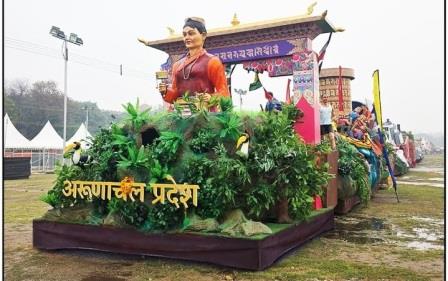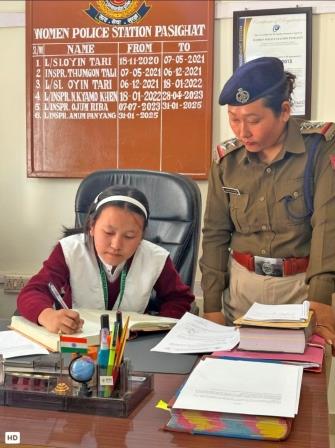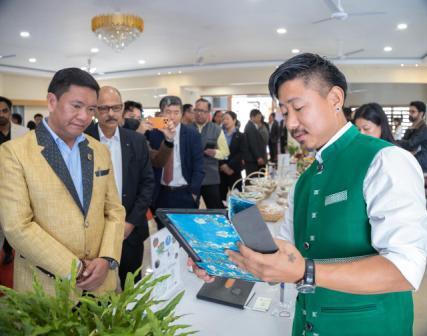-
 Arunachal tableau on R-Day spotlights state’s emergence as Adventure Capital…
Arunachal tableau on R-Day spotlights state’s emergence as Adventure Capital…
-
Etalin marks National Voters’ Day, encourages youth participation in democracy
-
Sona reviews PMGSY, VVP projects in Itanagar Circle
-
Lok Bhavan celebrates UP Diwas
-
 KGBV student leads WPS Pasighat on National Girl Child Day
KGBV student leads WPS Pasighat on National Girl Child Day
-
Meritorious students felicitated on National Girl Child Day
-
Awareness on POCSO held as part of National Girl Child…
-
Anini certifies 79 Nature Guides on National Tourism Day
-
 Startup success stories reflect potential of state’s youth: CM
Startup success stories reflect potential of state’s youth: CM
-
 Mein participates in vintage Willys Jeep Rally, inaugurates World War…
Mein participates in vintage Willys Jeep Rally, inaugurates World War…
After a day-long discussion on Tuesday, the Motor Vehicles (Amendment) Bill 2019 which seeks to amend the existing provisions of the Motor Vehicles Act, 1988 comprehensively has been passed in LS by voice vote. By making the penalty provisions stricter, introducing a legal safety shield for the benefactors who extend help to accident victims and substantially increasing the compensation amounts, this Bill, according to most observers is a major step towards improving the road safety mechanism in India. Interestingly, there has been little resistance from the opposition, a rare instance in the context of the current stormy session of parliament and although the actual effectiveness can only be ascertained after a reasonable period of time post enactment, its intentions have received commendation cutting across political circles and civil society.
With road accidents and related deaths getting out of control, it has been felt that the current provisions of the Act need a thorough restructuring and the new Bill thus, has tried to plug loopholes to make it more relevant to the present context. And among a slew of changes, the chapter which gives way to a manifold increase in penalties is the one that has been widely received. Driving without license and driving above the stipulated speeds which are the most common offences on Indian roads will now attract a penalty of Rs 5000, a whopping ten times increase from current Rs 500. Driving under influence of alcohol or drugs has been a steady contributor to road accidents and for curbing it, penalty has been increased from Rs 2,000 to Rs 10,000. For bringing qualitative improvements of roads, contractors will now be liable to pay fat fines for failure in complying with design standards. Hefty fines and/or imprisonment for not giving way to ambulances or fire brigades and technology driven Driving License allotment to check corruption will be new additions. These are just a few instances, but more importantly, central government will enjoy the authority to increase them by up to 10% every year to ensure continuity of the degree of strictness. It has also taken care of the compensation and immediate medical attention parts adequately. Minimum compensation for hit and run cases in case of death and grievous injury has also been increased by four times. A scheme for cashless treatment of road accident victims during the critical time following a traumatic injury will also receive appreciation.
In a nutshell, it can be said that the Bill with a host of ‘fine’ provisions has aimed to overhaul the worn out transportation laws by addressing the pressing issues. But success will depend largely on its effective implementation and cooperative involvement of the citizens in the process.

Kenter Joya Riba
(Managing Editor)She is a graduate in Science with post graduation in Sociology from University of Pune. She has been in the media industry for nearly a decade. Before turning to print business, she has been associated with radio and television.
Email: kenterjoyaz@easternsentinel.in / editoreasternsentinel@gmail.com
Phone: 0360-2212313

